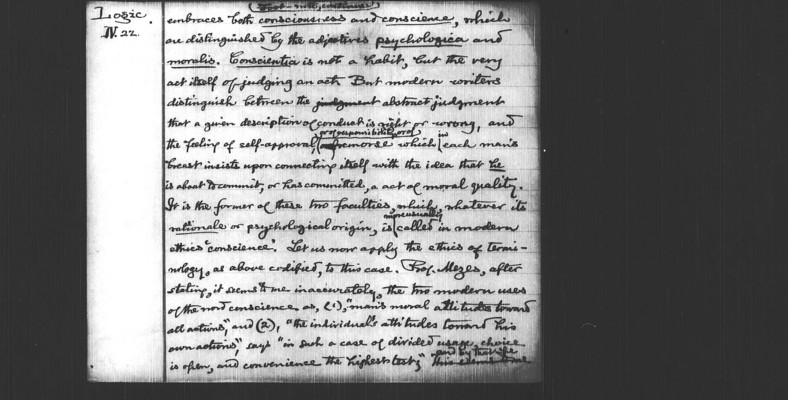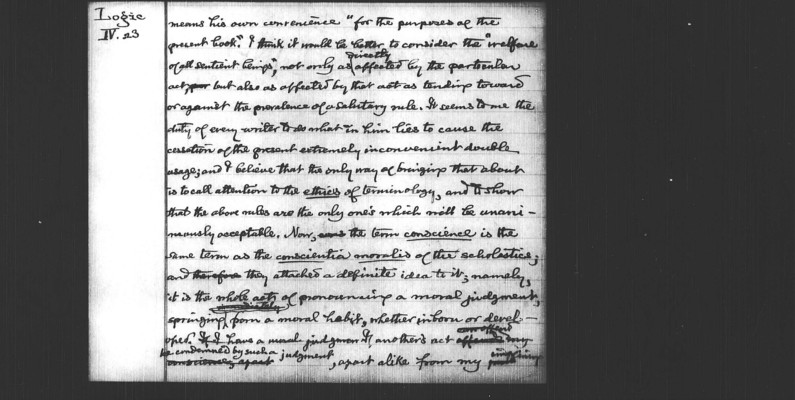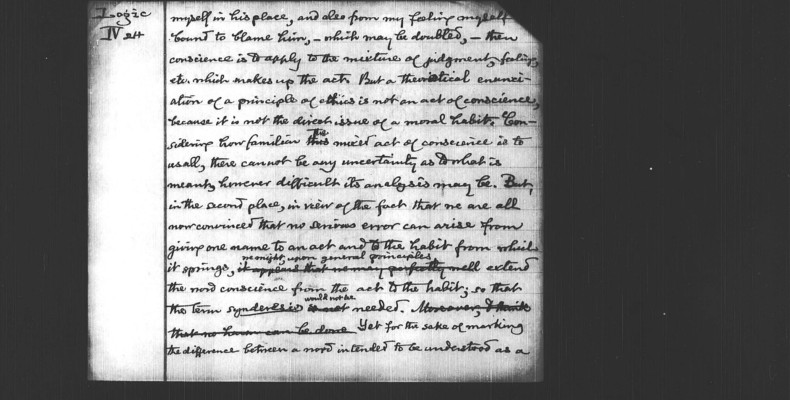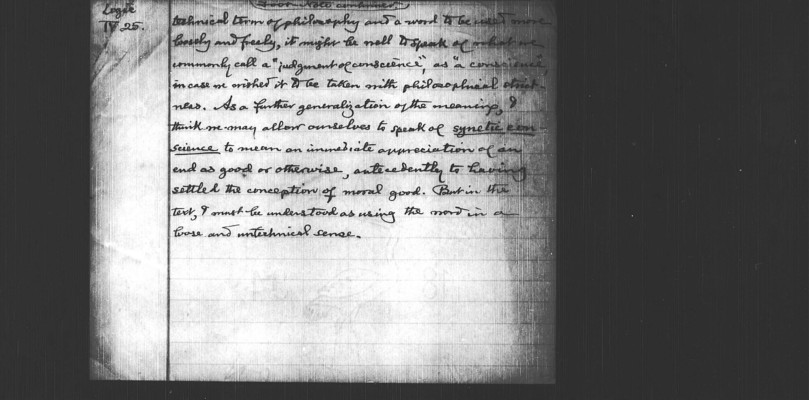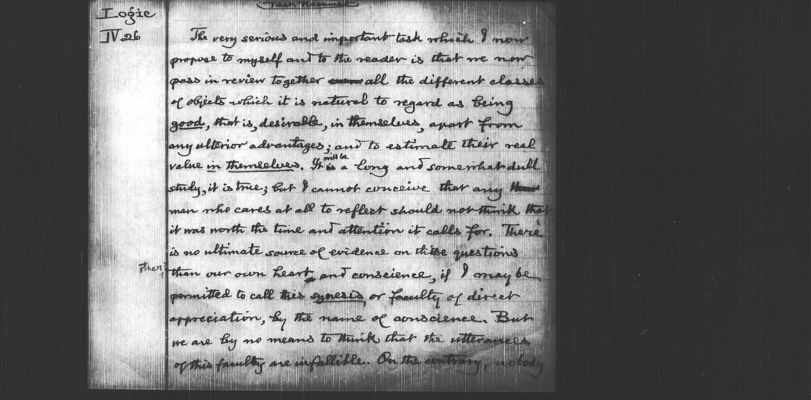Pages
11
Logic IV. 22 foot note continued embraces both consciousness and conscience which are distinguished by the adjective psychologica and moralis. Conscientia is not a habit but the very act itself of judgeing an act. But modern writes distinguish between the abstract judgement that a given description of conduct is right or wrong and the feeling of self approval or of responsibilities or of remorse which in each man's breast insists upon connecting itself with the idea that he is about to commit or has committed a act of moral quality. It is the former of these two faculties which whater its national or psychological origin is more usually called in modern ethics 'conscience.' Let us now apply the ethics of terminology as above codified to this case. Roy Mezes, after stating it seem to me iaccuralty the two modern uses of the work conscience as (1) man's moral attituded toward all actions and (2) the individuals attititudes toward his own actions , says in such a case of divided usage choice and by that he is often and convenience the highest test
12
Logic IV 23 means his own convenience for the purposes of the present book. I think it would be better to consider the welfare of all sentient beings, not only as directly affected by the particular act but also as affected by that act as tending toward or against the prevalence of a salutory rule. It seem to me that duty of every writer to do what in him lies to cause the cessation of the present extremely inconvenient double uses and I believe that the only way of bringing that about is to call attention to the ethics of terminology and show that the above rules are the only one's which will be unanimously acceptable. Now, the term conscience is the same term as the conscientia moralis of the scholastics and they attached a definite idea to it, namely it is the whote acts of pronouncing a moral judgement, springing from a moral habit, whether inborn or developed. I have a moral judgement if anothers act be condemned by such a judgement apart alike from my
13
Logic IV 24 myself in his place and also from my feelings myself bound to blame him which may be doubled, then conscience is to apply to the mixture of judgement, feeling, etc which makes up the act. But a theoretcial enunciation of a principle of ethics is not an act of conscience because it is not the direct issue of a moral habit. Considering how familiar the mixed act of conscience is to usall there cannot be any uncertainty as to which is meant however difficult its analysis may be. But is the second place in view of the fact that we are all never convinced that so serious error can arise from giving one name to an act and the habit from which it springs, we might upon general principles extend to word conscience from the act to the habit so that the term synderesis would be be needed. Yet for the sake of marking the differnce bwtween a word intended to be understood as a
14
Logic IV. 25. Foot note continued technical term of philosophy and a word to be used more loosely and freely it might be well to speak of what we commonly call a "judgement of conscience" as "a conscience" in case we wished it to be taken with philosophical strictness. As a further generalization of the meaning, I think we may allow ourselves to speak of synetic conscience to mean an immediate appreciation of an end as good or otherwise, antecedently to having settled the concetio of moral good. But in the text, I must be understood as using the work in a loose and untechical sense.
15
Logic IV 26 Text resume
The very serious and important task which I now propose to myself and to the reader is that we now pass in review together all the different classes of objects which it is natural to regard as being good, that is desireable in themselves apart from any ulterior advantages and to estimate their real value in themselves. It will be a long and somewhat dull study it is true but I cannot conceive that any man who care at all to reflect should now thinking that it was worth the time and attention it call for. There is not ultimate source of evidence on these questions other than our own heart and conscience, if I may be permitted to call this synesis or faculty of direct appreciation by the name of consicence. But we are by no means to think that the utternaces of this faculty are infallible. On the contrary, nobody
